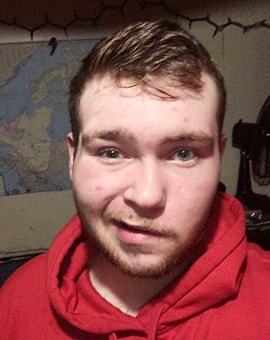When a soon-to-be Algonquin student left work one day, it wasn’t to go home and sleep like usual. Instead, Matthew Cameron found himself in the hospital – with half his face paralyzed.
“They told me what I already knew, I had Bell’s Palsy again.”
Bell’s Palsy is a condition where the nerve in your face swells up and becomes inflamed, rendering you weak on one side of the face.
Cameron’s eye can’t blink fully, only going about halfway, with his lip droopy and unmoving and one nostril not working half the time. One in 60 people will be diagnosed with it in their lifetime but generally disappears after about three to six months.
He had it for a year when he was a kid, and doctors told him it was too rare to happen a second time. Despite this, he was diagnosed with Bell’s Palsy again a month ago, 6 years later at the age of 18.
“I was depressed, I was made fun of a lot as a kid, but I’m an adult now so I knew it wouldn’t be the same,” says Cameron.
But that isn’t the case it seems. For Cameron, judgment is a problem, but the clothes don’t make the man. When friends ask “what’s wrong with your face?” it’s insensitive wording, but he understands the concern. The problem is that on three separate occasions he has been judged for it based on assumptions of him being developmentally delayed.
Cashiers have started to speak slowly to him and even people in his gym have made comments on the eyepatch that he wears to prevent sweat from entering his eye. “It has nothing to do with my brain capacity, it’s just how my face looks.” he says.
It’s not life-threatening, but he’s had to receive surgery because the medication he’s taking had unforeseen side effects. One of them destroyed his gag reflex after a week, causing a pileup of food in his esophagus which could have been fatal. He’s been given new meds to help fix it, but they’ll take a year to have the desired effect.
There’s been progress in his eye, but his mouth is yet to recover and doctors expect him to have to deal with this for another year.
He’s glad his medication is covered now, or else he would be seeing bills of up to $300 per month. This is something he wouldn’t be able to handle since his time in the hospital caused him to lose his job and his family doesn’t really have the extra money to spend.
Cameron has no real needs besides his medication, eye tape and sunglasses. He sees no real problems in his way when he heads to the Pembroke campus next semester for police foundations. Whether or not there will be complications in the program he’s unsure, but he hopes for the best and isn’t letting his condition trouble him.


